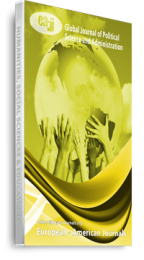The paper adumbrated on prevalent circumstances surrounding the delivery of the type of education that may not correspond to sustainability in Nigeria. This is against the backdrop of a plethora of negative imperatives in the motive, mode and usages for educational certificates instead of knowledge and merit. Abstracting from the philosophical postulations embedded in Aristotle’s Polis and Plato’s Republic as its theoretical foundation, the paper argued that education for self-actualization, if not skewed to align with the goal needs of the larger society cannot confer sustainability in the long run. Mainly descriptive in approach, the paper inferred that apart from the fact of poor funding and outmoded curriculum contents of Nigerian educational programme, which result in the churning out of graduates adjudged to be largely unemployable, a great number of education seekers still hold unto the misconception that an educational certificate, no matter how acquired and what nature it is, provides, not just jobs, but white collar jobs, whereas this had long been supplanted by pragmatism, smartness, innovation and creativity. The paper therefore recommended, among others, improved funding, the re-appraisal of educational curriculum, improvement in schools’ infrastructure, training of teachers etc.; community involvement in platforms for counselling, support and skill acquisition centres for alternative development; and the acquisition of skill sets in computer/ICT related programmes, arts and crafts, as complements to educational certificates that are expected to train the head and equip the hands at the same time.
Keywords: Education, Self-actualization, Society, Sustainability, Sustainable Development

